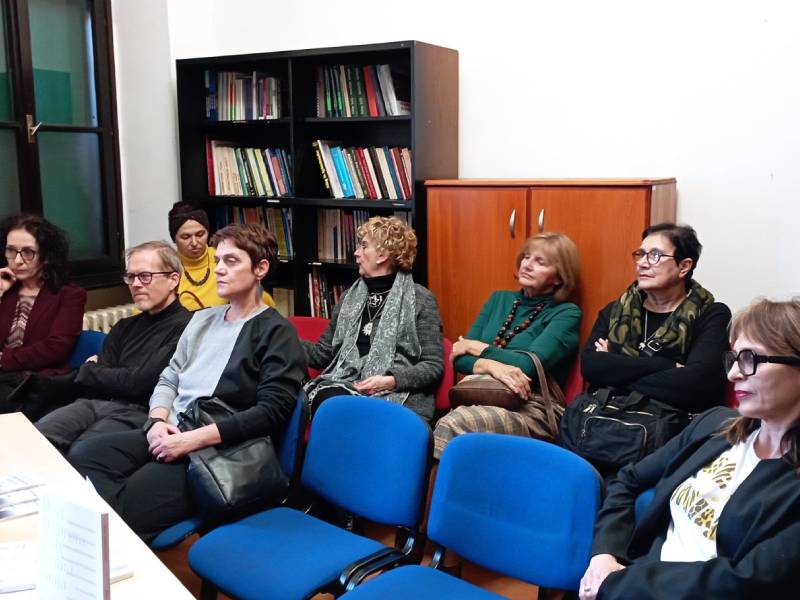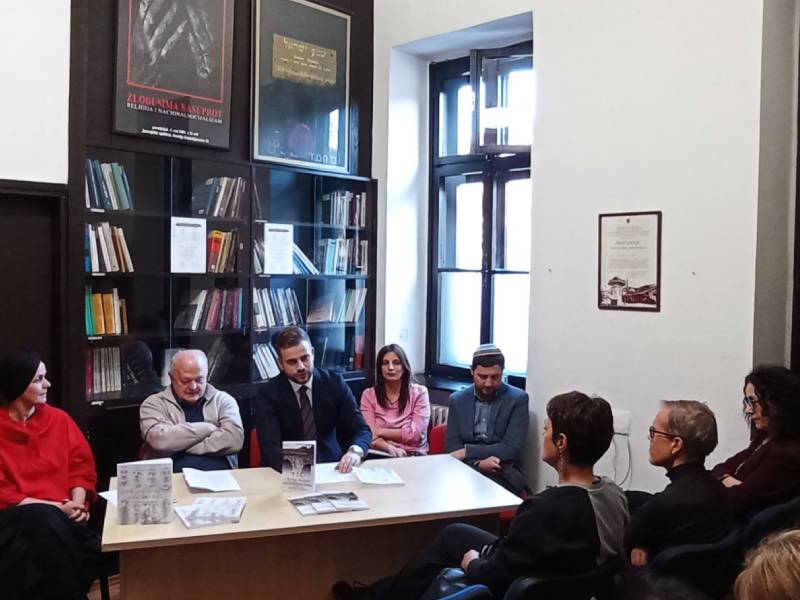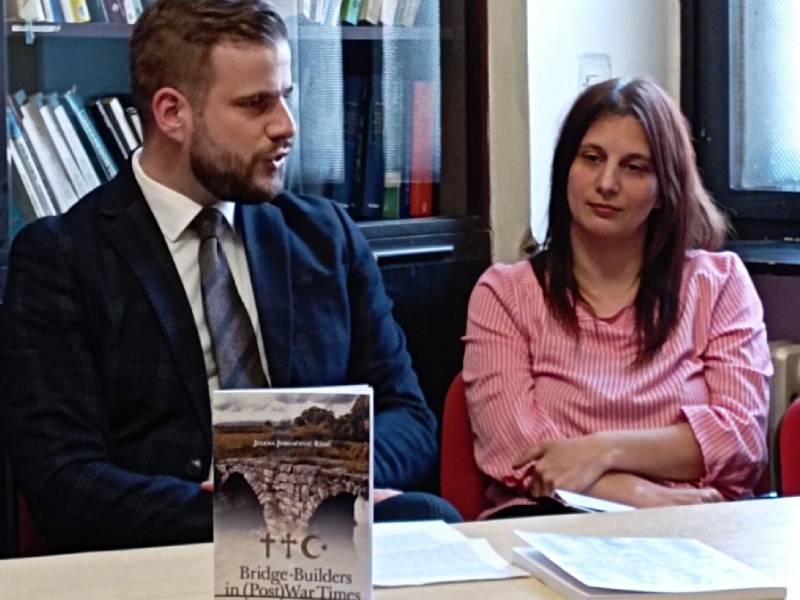On March 29, 2023, the International Multireligious and Intercultural Center IMIC Together in Sarajevo hosted the launch of the English edition of the book “Bridge-Builders in (Post)War Times: Guidelines on Interreligious Dialogue,” supported by KAICIID from Portugal. The author of the book, Jelena Jorgačević Kisić, is a journalist for the Belgrade weekly Vreme and a doctoral student at the University of Regensburg. She has received several national journalism awards for her articles and is the president of the non-governmental organization Forum for Religion, Media, and Culture of Memory.
The book aims to illustrate how true faith, as one of the interviewees puts it, is a faith that brings people together. The promotion was moderated by Nikola Vučić, a journalist from N1 TV, with speakers including Fra Ivan Šarčević, Prof. Dr.Sci. Zilka Spahić Šiljak, the hazan of the Sarajevo synagogue, and Igor Kožemjakin. Following the author’s introductory words, the speakers reflected on their initial impressions of the book and shared anecdotes from interactions with various religious representatives, as presented in the nine chapters.
The speakers highlighted the need for interreligious dialogue. Fra Šarčević emphasized, “Most of the interviewed religious representatives speak from the perspective of minorities. This is our specific context here. It is evident that those who feel like minorities are much more committed to dialogue than those in the majority. When it comes to the majority, I dare say they view dialogue as a compromise of their identity, as heresy. (…) Three individuals in the book specifically discuss forgiveness. They clearly state that it must start with the victims. Each interviewee speaks about reconciling nation and faith. I am grateful to Jelena for selecting these individuals. Jelena also effectively addresses the two fundamental approaches to forgiveness: no one can forgive on behalf of others, and forgiveness is unconditional. How can we talk about forgiveness if we do not forgive the hardest things? These are the dilemmas we face.”
Throughout her professional work and activism, Prof. Spahić Šiljak has contributed to society and raised public awareness about women peacemakers. In her remarks, she paraphrased the words of Fra Marko Oršolić, founder of IMIC Together and one of the interviewees: “The first things I learned from Fra Marko about twenty years ago, when we started working together, can be summarized as follows: where we are a minority, interreligious dialogue is a priority and it presses us existentially. Where we are in the majority, it is considered betrayal or heresy. I believe that minorities, due to their position in the socio-political reality, are more oriented towards dialogue and have worked more on peacebuilding in these regions, as evidenced by these nine stories.”
Minorities often face discrimination in society. However, willingness to forgive is a step toward healthy interreligious dialogue. Mr. Kožemjakin spoke about forgiveness and moral responsibilities: “I believe that the willingness to forgive may come when someone else forgives. This leads us to the realm of responsibility. Responsibility, in the context of criminal matters, cannot be collective; it can be individual. However, when it comes to moral responsibility, there is room for collective aspects. If we take the Holocaust as an example, i.e., post-Holocaust, whether among the perpetrators or the survivors and their descendants, we see two completely different views on the concept of forgiveness. Dialogue comes from the bottom up, and without personalities like those in this book, it is difficult to realize.”
At the end of the event, the author highlighted that many things are not taken for granted and that we need to communicate clearly and factually with the broader public. “Sometimes it seems to me that we often do not realize what is known or unknown to the wider public. Some things that we think everyone should know are not known. I think it is sometimes useful to speak to the broader public about things we take for granted, those of us engaged in this topic. Regarding the interviewees, they were not burdened by the structure of the interview. I allowed them to choose what they considered important. Even on the issue of confronting the past, the answers vary. As for dialogue, it seems to me like a cliché. There is resistance. I wanted to hear from people who authentically live this experience.” – said Jelena Jorgačević Kisić.
The conclusion of the promotion was that the only true person is a free person. Additionally, interreligious dialogue can help us discuss and approach the topic of forgiveness, but without it, everything remains mere coexistence – living next to each other rather than with each other.
This activity was part of the project “Introducing Gender-Sensitive Policies in Higher Education – UNIGEM,” implemented by the TPO Foundation and funded by the Government of the United Kingdom.





